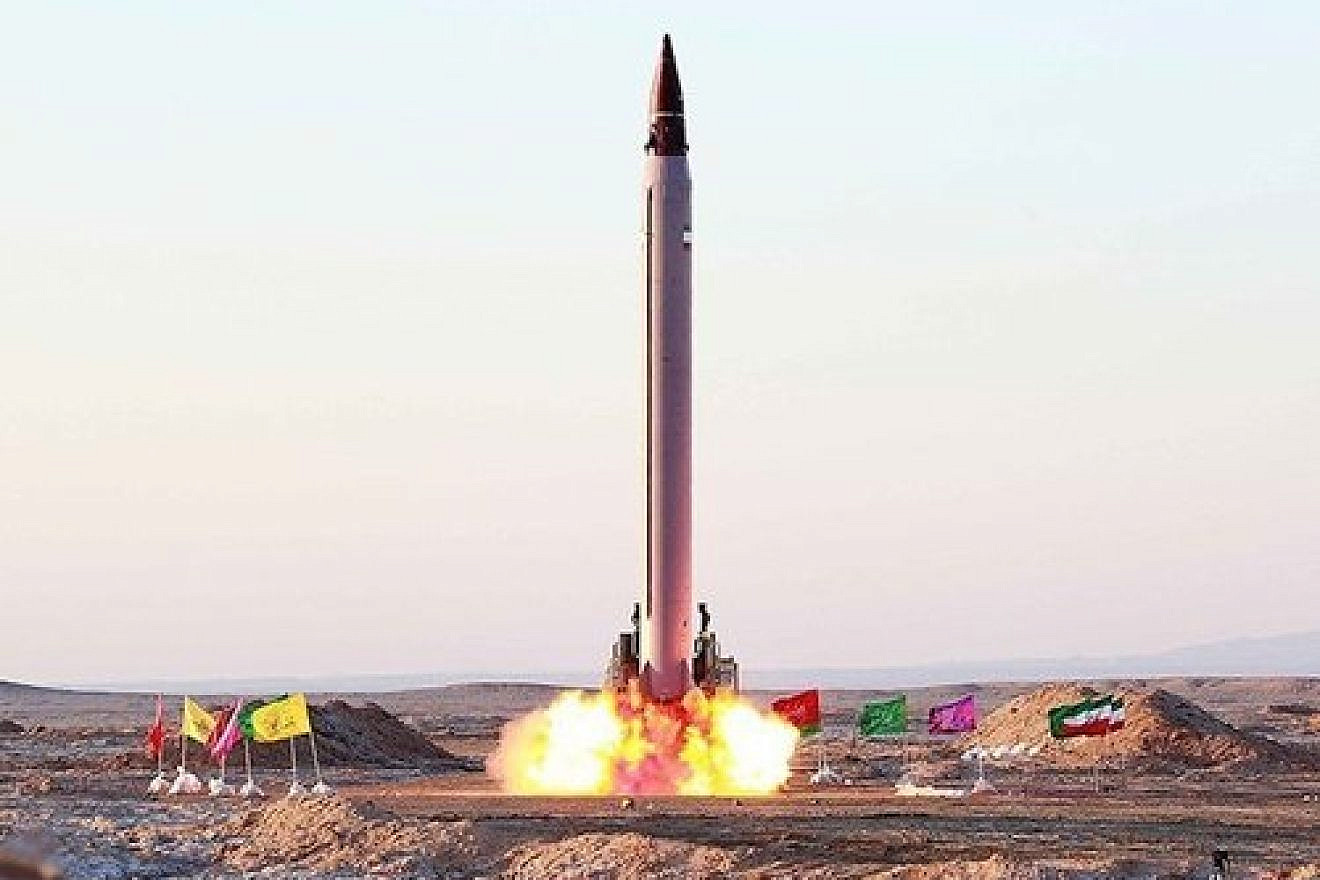
While Iran’s nuclear facilities may be the ultimate target for Israel’s promised retaliatory strike, skeptics have doubted if Israel is capable of reaching them by itself, given they are built deep underground.
That skepticism may be dissipating, at least among U.S. defense officials, according to The New York Times.
“[F]or the past few days, Pentagon officials have been wondering quietly whether the Israelis are preparing to go it alone, after concluding that they may never again have a moment like this one,” the Times reported on Monday.
Fueling speculation that this may be the case, an unnamed U.S. defense official told Sky News Arabic on Monday that Israel’s attack will be “greater than expected.”
The United States has long tried to hamstring Israel’s ability to take out Iran’s nuclear sites, fearing regional escalation. “President George W. Bush turned aside Israel’s demands to give its air force the United States’ biggest bunker-busting bombs, and the B-2 bombers that are needed to deliver them,” the Times said.
Iran has more than several dozen nuclear facilities covering the nuclear fuel cycle, from mining to power generation. The two most commonly mentioned in connection with Iran’s not-so-secret weapons program are the nuclear fuel enrichment sites of Natanz and Fordow.

Both are built deep inside mountains, leading some to conclude that even the U.S., using its largest “bunker buster,” the 30,000-pound Massive Ordnance Penetrator (MOP), couldn’t penetrate them.
Nevertheless, Israel has developed plans to destroy at least Natanz, and “cripple the giant centrifuge hall, where thousands of the tall, silver machines spin at supersonic speeds until the uranium approaches bomb-grade material,” the Times reported.
Israel has broadcast confidence about its expected Iran attack. Israeli Prime Minister Benjamin Netanyahu said hours after Iran’s ballistic missile strike on Oct. 1, “Iran made a big mistake tonight and will pay for it.”
Israel Defense Forces Chief of Staff Lt. Gen. Herzi Halevi promised the IDF would respond with “precise and surprising offensive capabilities.”
America has accepted that Israel will respond to the attack, unlike with the first Iranian missile barrage in April, after which U.S. President Joe Biden advised Netanyahu to “take the win” and not retaliate. (Israel limited its response to a strike on an airbase near Isfahan.)
However, while Biden said that the U.S. was “fully supportive” of Israel, he signaled that he would not back an attack on either Iran’s nuclear sites or its oil facilities.
Biden’s comments drew criticism from former President Donald Trump, the Republican presidential nominee, who said Israel should “hit the nuclear first and worry about the rest later.”
The Biden administration has offered Israel a “compensation package” if it refrains from striking certain targets in Iran, Israel’s Kan News public broadcaster reported on Sunday, including “extensive diplomatic backing and additional military aid.”
Israeli Defense Minister Yoav Gallant left for the U.S. on Tuesday for a one-day trip to meet with Defense Secretary Lloyd Austin on Wednesday. The visit is widely seen as an attempt by the U.S. to weigh in on the extent of an Israeli strike.
Citing U.S. officials, the Times report said that a first strike would likely focus on military bases and “perhaps some intelligence or leadership sites.”
However, a U.S. State Department official told CNN on Friday that despite U.S. opposition, Israel has given “no guarantees” regarding its planned attack.

Aiding Netanyahu in taking action independent of, or even in opposition to, the U.S. is a hardened Israeli public.
According to a JNS survey conducted by Direct Polls late last month, 83% of respondents said Israel made the right decision in not consulting the U.S. before assassinating Hezbollah leader Hassan Nasrallah. Only 9% said it was the wrong decision.
JNS also asked the public whether Israel should seize the momentum it has gained through its recent strikes on Hezbollah to attack Iran before the U.S. elections. Sixty-two percent of the public answered affirmatively.
Iran has warned Israel a retaliation would be met with a harsh response.
“We recommend the Zionist regime not test the resolution of the Islamic Republic. If any attack against our country takes place, our response will be more powerful,” Iranian Foreign Minister Abbas Araqchi said in a televised speech, Reuters reported on Tuesday.


















